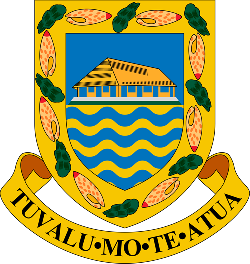Managing Coastal Aquifers in Selected Pacific Small Island Developing States Project (MCAP) Groundwater investigation in Nui, Tuvalu
1.1 Project background
The project, ‘Managing Coastal Aquifer in Selected Pacific SIDS’, is supported by the Global Environment Facility and is being implemented by UNDP and executed by the Disaster and Community Resilience Programme (Geoscience Energy Maritime Division) of the Pacific Community (SPC) in the Republic of Marshall Islands, Republic of Palau, and Tuvalu. The four-year (2021–2024), USD 5.2 million project aims at improving the understanding, use, management and protection of coastal aquifers towards enhanced water security, including in the context of a changing climate. More specifically it aims at 1) identifying the extent, threats and the development potential of groundwater resources, 2) increasing awareness of groundwater as a water security supply source, 3) providing options for improved access to groundwater and 4) and improving aquifer protection and management, within Pacific Small Island Developing States.
1.2 Mission objectives and outcomes
The present investigation primarily aimed at identifying fresh groundwater resources on the islands of Fenua Tapu and Meang within Nui that could complement existing water supplies or serve as a backup during dry periods. Additional objectives included a survey of private and traditional wells, a survey of the pulaka (swamp taro) pits, conducting socio-cultural surveys with the island communities and conducting training workshops with community volunteers (including Red Cross) to build local capacity in undertaking water resources monitoring. The purpose of the socio-cultural surveys was to archive the information, location, and status, on culturally important and traditional groundwater infrastructure for (i) preservation of culture and historical infrastructure, (ii) groundwater protection and historical monitoring points, (iii) groundwater awareness, (iv) identifying, appreciating, recognising, and incorporating traditional water resource management practices. The purpose of the training workshops was to build capacity within the community to periodically monitor water resources (i.e., rainwater tanks, cisterns, and wells) to support water resources management within the community and in coordination with Government.
Nui Report - http://www.spc.int/DigitalLibrary/Get/6idcp
